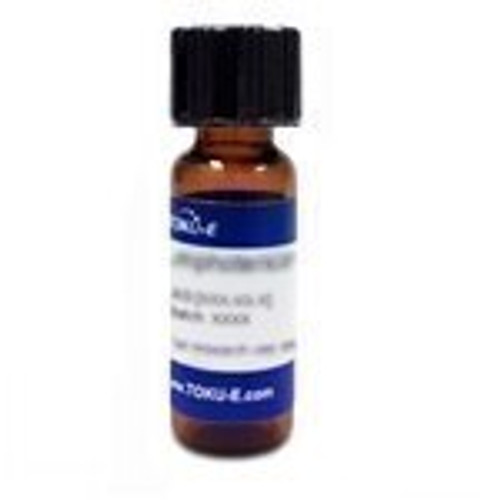Collinin is a terpenylated coumarin isolated from Flindersia maculosa and other species by Ritchie and colleagues at Sydney University, Australia in 1954. Collinin possesses broad spectrum activity as an inhibitor of inflammation, collagenase and the differentiation of human preosteoclastic cells. Collinin induces apoptosis in human Jurkat T cells and is active against resistant strains of Mycobacterium tuberculosis.
| Molecular Formula | C20H24O4 |
| References | Anet FAL et al (1949) The chemical constituents of Australian Flindersia Species. I. Collinin, 7-geranoxy-8-methoxycoumarin. Aust. J. Sci. Res. 2:127 Brown RFC et al (1954) The chemical constituents of Australian Flindersia species. V. The constituents of Flindersia maculosa Lindl. Aust. J. Chem 7:181 Epifano F et al (2008) Chemistry and pharmacology of collinin, active principle of Zanthoxylum spp. Mini Rev. Med.Chem. 8:1203 Kim S et al (2018) In vitro activity of collinin isolated from the leaves of Zanthoxylum schinifolium against multidrug- and extensively drug-resistant Mycobacterium tuberculosis. Phytomed. 46:104 Kim J-S et al (2013) Induction of apoptosis by collinin from Zanthoxylum schinifolium is mediated via mitochondrial pathway in human Jurkat T cells. Process Biochem. 48:945 Santos J et al (2013) Collinin reduces Porphyromonas gingivalis growth and collagenase activity and inhibits the lipopolysaccharideinduced macrophage inflammatory response and osteoclast differentiation and function. Santos J. et al., J.Periodontol. 84:704 |


